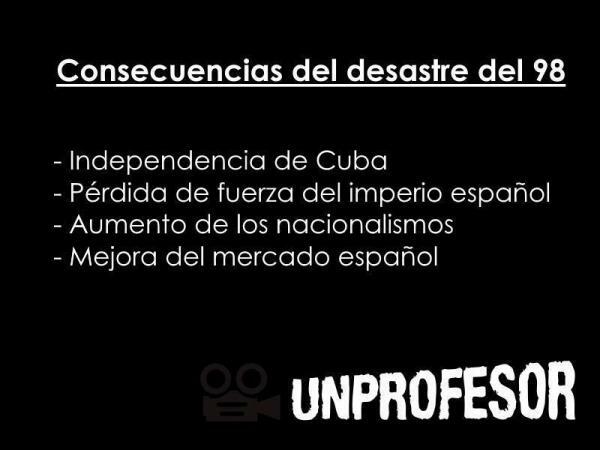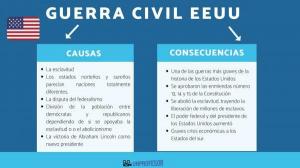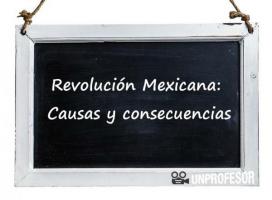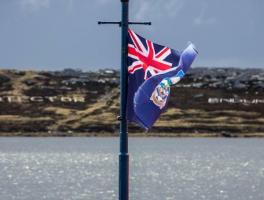Consequences of the disaster of 98

The end of the 19th century for Spain was loaded with a series of elements that would end up killing what that it had been the largest European empire and that, until then, it held a series of possessions in overseas. In this lesson from a TEACHER we will delve into the consequences of the disaster of 98, name by which the defeat suffered against the United States of America was known, reason for the which would lose the islands of Cuba, Puerto Rico, the Philippines and Guam that would become the possession of the USA.
Index
- Background to the war in Cuba
- The sinking of the Maine and the start of the war
- Consequences of the war
Background to the war in Cuba.
We must bear in mind that the United States of America (from its creation until the 20th century) will have a continental policy whose best-known phrase was "America for the Americans." To this end, in the last quarter of the nineteenth century they had put in his sights to the Spanish Caribbean and some Pacific islands,
that they saw that they should be under their dominion because they were close to the continent.On the other hand, one of the elements that played against the Spanish would be the independence movement that had grown in Cuba during the second half of the century, causing some revolts that, in one way or another, the metropolis had managed to calm. This would be used by US journalists as a spearhead to indoctrinate the Americans against the Spanish, in view of a possible intervention on the island.
In this way it is easy to find a series of engravings or drawings with very satirical overtones in which Spain appeared as a great oppressor of the Cuban people, although inversely we will also find strips satirical scenes from Spain in which the shadow of the United States' hand appeared on the islands to try to take them. All this was promoting a series of tensions that would eventually lead to the war conflict.
Other cases of international conflict in Spanish territory
We must know that, for Spain, the overseas territories were never considered colonies proper, but rather were “autonomous” territories within the kingdom of Spain that had special codes by which they could only trade with the peninsula. The problem was that these regulations were not well regarded by the incipient bourgeoisie in those territories, as they could not get more benefits.
Thus we will find a series of ideologies created by members of those societies in which the metropolis was branded as a tyrant and oppressor. All of this would lead to atmosphere of tension that ended up producing a series of revolts and revolutions. It was these cases that many powers took advantage of to try to snatch from Spain everything that was left outside the peninsula.
This was the case of Germany on Papua and the Carolinas, in which this European country wanted to introduce a protectorate due to the great wealth that said area had. This was another of the conflicts that our country had to face in the last quarter of the 19th century. although, at that time, the Spanish defense was quite strong and managed to stop the advance of that power emergent.

Image: Slideshare
The sinking of the Maine and the beginning of the fight.
Continuing with our lesson on consequences of the disaster of 98, we must stop to learn about another of the excuses that the United States made to start the war, in this case being the sinking of the Maine on February 15, 1898 in the port of Havana, while the American officers enjoyed an evening in her honor with the Spanish authorities.
This fact was quickly dismissed by the Americans as an attack on her honor and they demanded that the Spanish government withdraw from Cuba. On the Spanish side, the accusations sent by the ambitious Americans were denied and thus a war between the two countries began.
A fact that was revealed almost a century later, in 1975, was that the Maine was in deplorable condition and that it would be an internal combustion of the ship that caused it to explode, thus being a ploy on the part of the Americans, to have left such Troy Horse In the Habana.
An important factor, in addition to the military power of the United States and its proximity to the foci of combat, was that months before had been enclosing the area of the Philippines, Puerto Rico, Guam and Cuba, thus creating a kind of blockade for a possible conflict. Thus, when the war treaty was signed, the American troops would begin their blockade, making it impossible to Spanish resistance, which managed to sink only one ship, the USS Merrimac, while the Americans would destroy two Spanish fleets.
Of course, the two most important battleships in Spain that could have changed the course of the war never left the port, taking for granted the idea that had the government towards the islands, which for some time had been undermining the policy of the Spanish and threatened to end the system of the Restoration. A) Yes in July 1898, Spain began peace negotiations with the United States of America.
In this other lesson from a TEACHER we offer you a brief summary of the Disaster of 98.

Consequences of the war.
The December 10, 1898, the Paris agreements were produced, by which Spain left Cuba, Puerto Rico, the Philippines and Guam in exchange for 20 million dollars. Among the consequences of the disaster of 98 we must mention the most important:
Independence of Cuba
Even though the island of Cuba was abandoned by Spain, it was decided that it should be independent, a fact that remained completed in 1902, although under the tutelage of the United States (it was never carried out and therefore later would explode Cuban revolution).
Loss of strength of the Spanish Empire
The Spanish islands that were in Oceania, as you were the Marianas, the Carolinas and PalauThey would be sold to Germany in 1899 for 25 million pesetas, because Spain was not able to maintain them militarily, since the previous year it had lost almost its entire fleet.
In this way, the remains of the old Spanish Empire in 1898 were lost, creating a feeling of tension that would soon be seen in Spanish literature. This is how the call was born in our country Generation of '98, whose most prominent characters were Unamuno, Pío Baroja, Maeztu, among a large group of men related to culture.
Increase in nationalisms
Among the consequences of the disaster of 98 we find the rise of nationalisms throughout the peninsula, in response to the attack suffered by foreign powers, which was seen both in culture and in art.
In the same way the Regenerationism, who wanted to end the caciquil system imposed by Cánovas del Castillo for the regeneration of governments. The main figure of this would be Joaquín Costa, who warned that the system could be saved from Restoration, as long as a series of barriers were eliminated, which did not allow new ideas to enter to the government.
For this reason, and as it would happen with nationalisms, it was taken to schools to educate the next generations.
However, one fact that no one would expect was that the Spanish markets, hardly suffered With the loss of the colonies, moreover, it can be said that it even improved, due to the fact that many goods that were in the islands were repatriated, which had a great impact on the country's coffers.

If you want to read more articles similar to Consequences of the disaster of 98, we recommend that you enter our category of Story.



